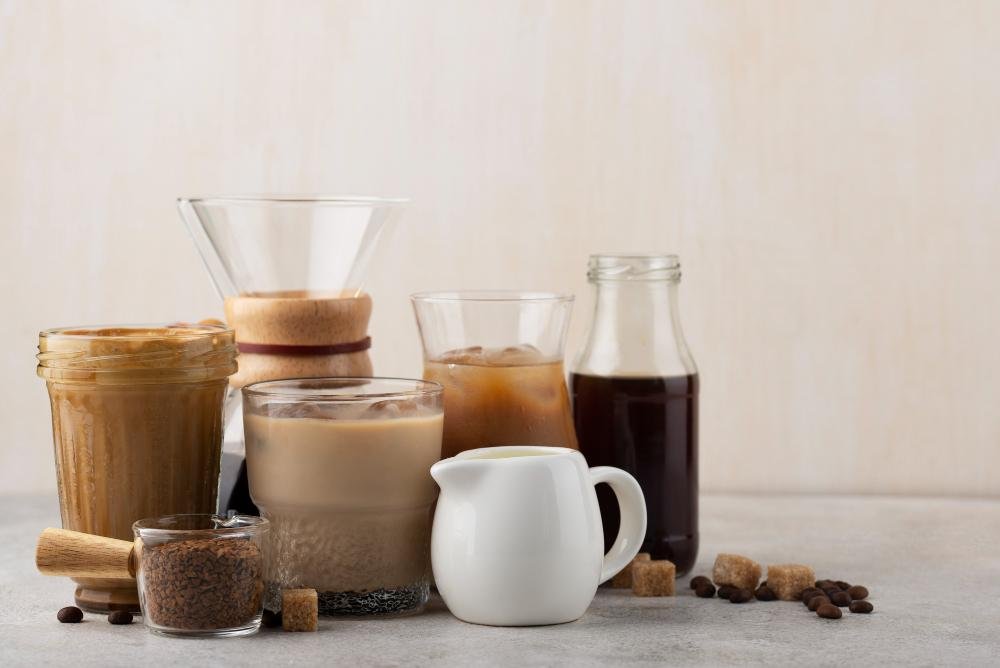What Makes Chai Different from Coffee?

When it comes to caffeinated beverages, few debates spark as much passion as how chai and coffee are different. Both drinks have been around for centuries, each with its own rich cultural history, and they’re often part of people’s daily routines around the world. However, despite their common purpose—to give us a jolt of energy and a comforting moment of ritual—chai and coffee offer unique experiences that go far beyond their caffeine content. From the flavor profiles to the brewing processes and even the health benefits, these two drinks couldn’t be more distinct. If you’ve ever found yourself in a chai vs. coffee dilemma, this guide will help you understand the key differences that make each beverage special.
1. Cultural Origins and Traditions
The origins of chai and coffee are rooted in different parts of the world and represent unique cultural traditions that influence the way each beverage is prepared and consumed.
Coffee’s Global Appeal
Coffee is believed to have originated in Ethiopia in the 9th century, though it was popularized by the Arabs and eventually spread through Europe, the Americas, and the rest of the world. Today, coffee is consumed worldwide and has a strong cultural significance in countries like Italy (with its espresso culture) and Brazil (which is the largest coffee producer globally). In many Western cultures, coffee is often a solo beverage, consumed quickly in the morning or as part of social gatherings, typically without much added flavor or embellishment.
Coffee’s global appeal lies in its simplicity and versatility. From a straightforward black coffee to sophisticated espresso-based drinks like lattes, cappuccinos, and macchiatos, coffee can be customized to suit various tastes and preferences.
Chai’s Deep-Rooted Tradition
Chai, on the other hand, has deep roots in India, where it is considered much more than just a drink—it’s a way of life. In fact, “chai” simply means “tea” in Hindi, but in the West, it typically refers to masala chai, a spiced tea blend brewed with black tea leaves, milk, sugar, and a variety of spices such as cardamom, cinnamon, ginger, and cloves.
While chai may be a staple in India, it has also gained popularity in other countries, including the United States, where it has evolved into different forms, including iced chai lattes and chai teas. The preparation of chai is more ritualistic compared to coffee and varies from family to family. Spices and sweetness levels are often adjusted to suit personal preferences or regional variations. In Indian culture, chai is a beverage of hospitality, often shared with guests during meaningful social interactions.
2. Ingredients and Flavor Profiles
One of the most significant ways in which chai and coffee differ is in their ingredients and the resulting flavor profiles.
Coffee: Bold, Bitter, and Earthy
Coffee is made from roasted beans, which are ground and brewed using various methods, such as drip, French press, or espresso machines. The result is a drink with a bold, sometimes bitter flavor that’s deeply rooted in the earthy taste of the coffee beans. The flavor can range from fruity to nutty, smoky, or even chocolatey, depending on the type of bean and its origin.
Coffee’s bitterness comes from compounds like chlorogenic acids, which develop during the roasting process. Because of this, many coffee drinkers opt to balance the bitterness by adding milk, cream, sugar, or flavored syrups. For others, though, the bitterness is an essential part of the coffee-drinking experience, with each sip offering a distinct and complex taste.
Chai: Spicy, Sweet, and Aromatic
Chai, on the other hand, is all about the spices. The base of chai is usually black tea, which is brewed with milk (or dairy-free alternatives) and sweetener, along with a medley of spices. The blend of spices typically includes cinnamon, cardamom, ginger, cloves, and black pepper, though regional variations may feature other spices like fennel or nutmeg.
The result is a drink that is rich in flavor—sweet, spicy, and aromatic. The sweetness from the milk and sugar balances out the sharpness of the spices, creating a well-rounded and comforting taste. Unlike coffee, which can sometimes feel intense or harsh, chai has a soothing quality that makes it perfect for relaxing or warming up on a cold day. Each sip brings a burst of spice and sweetness that dances on the palate, offering a sensory experience that is both invigorating and calming.
3. Caffeine Content: A More Subtle Buzz in Chai
Both chai and coffee are popular choices for those looking for a caffeine boost, but they differ greatly in their caffeine content and how they affect your body.
Coffee: A Stronger Caffeine Kick
A typical 8-ounce cup of brewed coffee contains approximately 95 milligrams of caffeine, though this amount can vary depending on the brew method and the type of coffee beans used. Espresso, for example, contains around 63 milligrams of caffeine per ounce, making it a much more concentrated source of caffeine than regular coffee.
For many, the higher caffeine content of coffee provides an instant energy boost, increased alertness, and improved concentration. It’s the drink of choice for those who need to kickstart their day or stay awake during long, tiring activities.
However, while coffee’s caffeine content can be a perk for some, it can also cause side effects, such as jitters, anxiety, or disrupted sleep, particularly for those who are sensitive to caffeine or consume large quantities throughout the day.
Chai: A Gentle, Steady Energy Boost
Chai, in contrast, contains much less caffeine. A typical 8-ounce cup of chai has around 30 to 50 milligrams of caffeine, depending on the strength of the brew. This means that while chai can provide a gentle energy boost, it won’t leave you feeling jittery or overly stimulated like coffee might. The lower caffeine content in chai makes it a better option for people who are caffeine-sensitive or who prefer a more subtle, longer-lasting boost of energy.
Additionally, the spices in chai may have their own calming effects, helping to balance the energizing effects of the tea. Ingredients like cinnamon and ginger are known for their anti-inflammatory properties, while cardamom can aid digestion and improve circulation.
Conclusion: Which One Is Right for You?
Ultimately, whether you prefer chai or coffee comes down to personal taste, lifestyle, and health goals. Coffee may be your go-to if you need a strong, quick energy boost to get through the day. With its robust flavor and higher caffeine content, coffee is perfect for those who thrive on a stronger, more intense kick.
On the other hand, chai offers a more balanced experience, with its aromatic spices and gentle caffeine content providing a steady, comforting energy boost. Chai is perfect for those who enjoy a warm, flavorful drink that’s both energizing and soothing. If you’re craving a cup of chai and want to experience it in all its rich, aromatic glory, try chai at our café in Michigan. We offer a variety of chai options, from the classic masala chai to creative variations that will satisfy your taste buds and provide the comforting warmth you’re seeking. Whether you’re a chai enthusiast or a coffee lover looking for a change, our café is the perfect place to explore this beloved beverage.






